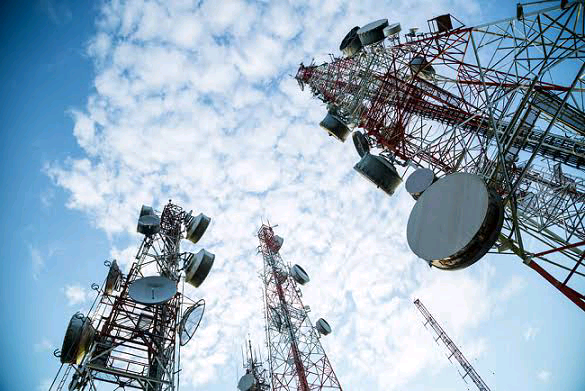The Nigerian telecommunications sector is embroiled in a heated dispute over a 50% tariff hike implemented by operators, sparking widespread backlash from subscribers and the Nigeria Labour Congress (NLC). The controversy stems from the operators’ decision to proceed with the price increase despite an ongoing review process initiated by the Nigerian Communications Commission (NCC) following earlier protests by the NLC. This preemptive action has been widely condemned as a breach of trust and a blatant disregard for due process, further fueling tensions between consumers, operators, and the regulatory body. The dispute highlights the delicate balance between the need for operators to maintain profitability in the face of rising operational costs and the affordability concerns of consumers, particularly in a challenging economic climate.
The disagreement centers around the timing and implementation of the tariff increase. The NLC had initially planned a nationwide strike in February 2025 to protest the proposed hike. However, following a meeting with the Federal Government and the NCC, the strike was suspended, and a 10-person review panel was established to assess the justification for the tariff increase and make recommendations. The panel’s deadline was set for February 17, 2025. However, defying the agreed-upon process, telecom operators, led by MTN, began implementing the 50% increase before the panel had concluded its deliberations. This action sparked outrage from the NLC and subscribers, who felt betrayed by the operators’ disregard for the ongoing review. The NLC accused the operators of exploiting Nigerian citizens and called for a nationwide boycott of their services.
The NLC’s response escalated from an initial call for a partial boycott of telecom services to a threat of a complete nationwide shutdown commencing March 1, 2025, should the operators fail to revert the price hike by the end of February. This strong stance reflects the union’s frustration with what it perceives as both corporate greed and a failure of the government to protect consumers from exploitative practices. The NLC also demanded the repatriation of funds it alleges were unlawfully siphoned out of the country by telecom companies, indicating a deeper mistrust of the industry’s financial practices. The union has mobilized its state councils and affiliate unions to sensitize and mobilize members and the public for the potential nationwide shutdown, urging them to participate in “electronic silence” during specified protest hours.
While the NLC advocates for a complete boycott, the National Association of Telecommunications Subscribers (NATCOMS) has adopted a different approach. NATCOMS criticizes the operators for undermining the review process and disregarding the agreement reached with the NLC, emphasizing that sanctions should be imposed on any operator that implemented the price hike prematurely. They argue for a more measured approach to the tariff increase, suggesting a phased implementation, potentially starting with a 10% or 30% increase, similar to the phased approach adopted for fuel price hikes. NATCOMS insists that the NCC must hold operators accountable for their actions and enforce adherence to the agreed-upon review process. They are prepared to consider legal action depending on the outcome of the review panel’s findings.
The telecom operators, represented by the Association of Telecommunications Companies of Nigeria (ATCON), defend the tariff hike, citing escalating operational costs due to inflation, exchange rate fluctuations, and substantial investments required to meet growing consumer demand. They argue that call and data tariffs have remained stagnant for years, making the increase necessary for the long-term sustainability of the sector. ATCON highlights the significant financial pressures faced by operators, including a projected drop in capital expenditure due to delayed tariff adjustments. They see the critics’ approach as flawed, questioning whether consumers want good service at affordable prices or no service at all, suggesting that sustained pressure on profitability could lead to service disruptions.
The NCC, caught in the crossfire, has maintained a cautious stance, declining to comment directly on the NLC’s call for a boycott or the House of Representatives’ directive to suspend the tariff hike. This reticence underscores the complexities of the situation, balancing the interests of consumers, operators, and the government’s objective of maintaining a viable and competitive telecommunications sector. The Private Telecommunications and Communications Senior Staff Association of Nigeria (PTECSSAN), while supporting the tariff increase in principle due to the prevailing economic conditions, acknowledges the validity of the NLC’s concerns regarding the implementation process. They agree that operators should have adhered to the agreed-upon review timeline before implementing the hike. The ongoing dispute underscores the need for a more transparent and collaborative approach to tariff adjustments, ensuring that the interests of all stakeholders are considered and that any increases are justified and implemented in a manner that minimizes disruption and maintains public trust.














